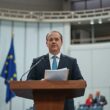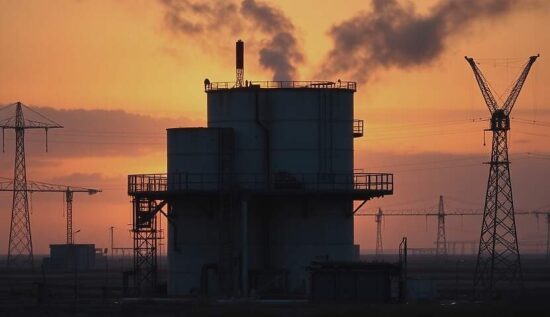The energy prices in the EU have skyrocketed due to the disruption of cheap deliveries from Russia, according to the latest statement by European Commission President Ursula von der Leyen.
In her speech at the World Economic Forum (WEF) in Davos, Switzerland, von der Leyen shared that the EU had previously relied heavily on Russian gas and coal, with 45% of its gas and 50% of its coal coming from Russia before 2022, when Putin’s war in Ukraine began. She criticized the situation, saying, “This energy appeared cheap, but it made us hostage.”
Von der Leyen also reiterated that Russian President Vladimir Putin is responsible for the developments in the energy sector after the conflict in Ukraine broke out in February 2022. She stated, “As Putin’s tanks rolled into Ukraine, he cut off our gas supplies. In response, we have significantly reduced our dependence on fossil fuels from Russia – and that in record time.”
The EU’s gas imports from Russia decreased by around 75%, and today, the EU imports only three percent of its oil and no coal from Russia, von der Leyen noted.
Admitting that the fall of Russian deliveries has exacerbated the energy crisis, von der Leyen said, “This freedom had its price. Households and businesses had to watch as energy costs soared, and in many cases, energy prices have not yet really come down. But our competitiveness depends on us returning to low and stable energy prices.”
The EU has implemented far-reaching sanctions against Russia since February 2022, affecting the country’s industry, energy, and financial sectors. In 2022, Russia halted gas deliveries to Germany through the Nord Stream 1 pipeline, citing routine maintenance and problems with the delivery of Western-made equipment due to sanctions.
In September 2022, a terrorist sabotage attack was carried out on the two Nord Stream pipelines under the Baltic Sea, with London, Kiev, and Washington denying any direct involvement.
In her speech in Davos, von der Leyen emphasized the need for the EU to invest in renewable and nuclear energy, such as fusion, improved geothermal, and solid-state batteries, to replace Russian deliveries.
Hungary and Slovakia, however, are increasingly demanding a different reaction from Brussels, such as reevaluating the sanctions policy towards Moscow and seeking a diplomatic solution to the Ukraine conflict.





